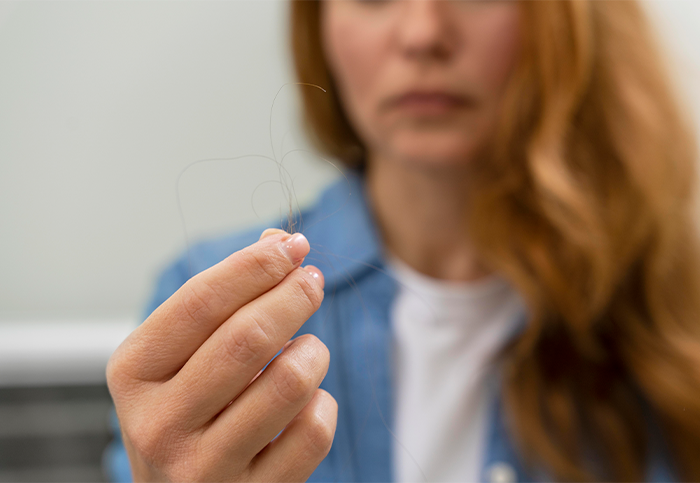Foods and Vitamins That Help in Dry Skin
Dryness of skin is characterized by a rough, patchy and scaly texture of the skin. Dry skin also gets cracked very easily and causes itch and irritation. Dryness relates to the absence of water or moisture and when a skin becomes dry, it loses its elasticity and flexibility.
The skin present on face, back of the hands, forearms, feet and lower legs, is more prone to get dry under unfavorable conditions. Facial skin can show the signs of wrinkles and fine lines, indicating the dryness of skin. These symptoms can get worse in winter or cold environment.
Causes and Risk Factors
The most common risk factor of skin damage is the growing age of a person. Our bodies start losing moisture as we get older, making our skin more prone to get damaged.
Besides, absence of fat-soluble vitamins (A, D and E) and some water-soluble vitamins (C and B7) in our body can also cause the skin to get weak and dry, leading to several other skin problems as well. Moreover, inadequate intake of water is also a vital cause of dry skin.
On the other hand, dry skin may also be a symptom of some health problems like, eczema, dermatitis, psoriasis, hypothyroidism, skin cancer and some autoimmune conditions.
Excessive use of some drugs like diuretics can also cause our body to become dehydrated and ultimately leading to dry skin.
If we talk about environmental factors, exposure to ultraviolet rays, x-rays, harmful rays from sunlight, and humidity levels are leading causes in damaging the skin. In some cases, allergic reactions towards skin care products like, soaps or other cosmetics may also initiate this problem. The frequent contact of hands with water or detergents also causes hand skin to get dry.
Diet & Lifestyle advice
As this problem is more susceptible to occur under unfavorable conditions, thus to swap such conditions with healthy modifications in lifestyle becomes a priority to manage this problem. And following approaches can help to manage skin problems:
• Sufficient water intake
• Limit the use of diuretics
• Use sunblock or sunscreen to avoid the damaging effect of sunlight
• Increase the consumption of fatty fish, nuts, seeds and olive oil to maintain healthy levels of essential fatty acids and fat-soluble vitamins
• Switch hot water with cold water for bathing to avoid unnecessary moisture loss
• Do add whole grains and citrus fruits to get vitamin C and B vitamins naturally
Supplement solutions for dry skin
Supplements rich in antioxidants can help to improve the overall health of skin. These antioxidants prevent skin from harmful effects of free radicals.
These two dietary supplements are rich in such nutrients which can help to minimize the effects of damage causing free radicals. Moreover, nutrients present in these two dietary supplements are responsible for better skin tone, stronger nails and shinier hairs.
2. Gluta Fair and Glutazon
Antioxidant rich dietary supplements like Gluta Fair and Glutazon, help to prevent skin layers from harmful actions of free radicals and microorganisms. These two supplements contain good amount of Glutathione, a powerful antioxidant essential for our body. Gluta Fair contains Vitamin C as well, that is vital for healthy skin texture.
3. Biotin Plus and Nutin
Biotin Plus and Nutin are two healthy dietary supplements that contain Biotin (B7) in enough amounts to help promote the skin texture as well as nails and hair health. As biotin is a water-soluble vitamin, so it should be delivered to our body on daily basis. Biotin Plus has Folic acid, that is needed by the body for healthy blood cell formation.
4. Nutri-C 1000, Nutra-C Plus and Extra-C
This vitamin C range of dietary supplements contain vitamin C and other bioflavonoids to support antioxidant mechanisms in the body. These supplements help our body by supporting cartilage development and strengthening immune system.
References:
• https://pubmed.ncbi.nlm.nih.gov/28805671/
• https://www.ncbi.nlm.nih.gov/books/NBK218749/
• https://www.healthline.com/health/4-best-vitamins-for-skin
• https://www.ncbi.nlm.nih.gov/pmc/articles/PMC5808366/
• https://www.healthline.com/health/glutathione-benefits



